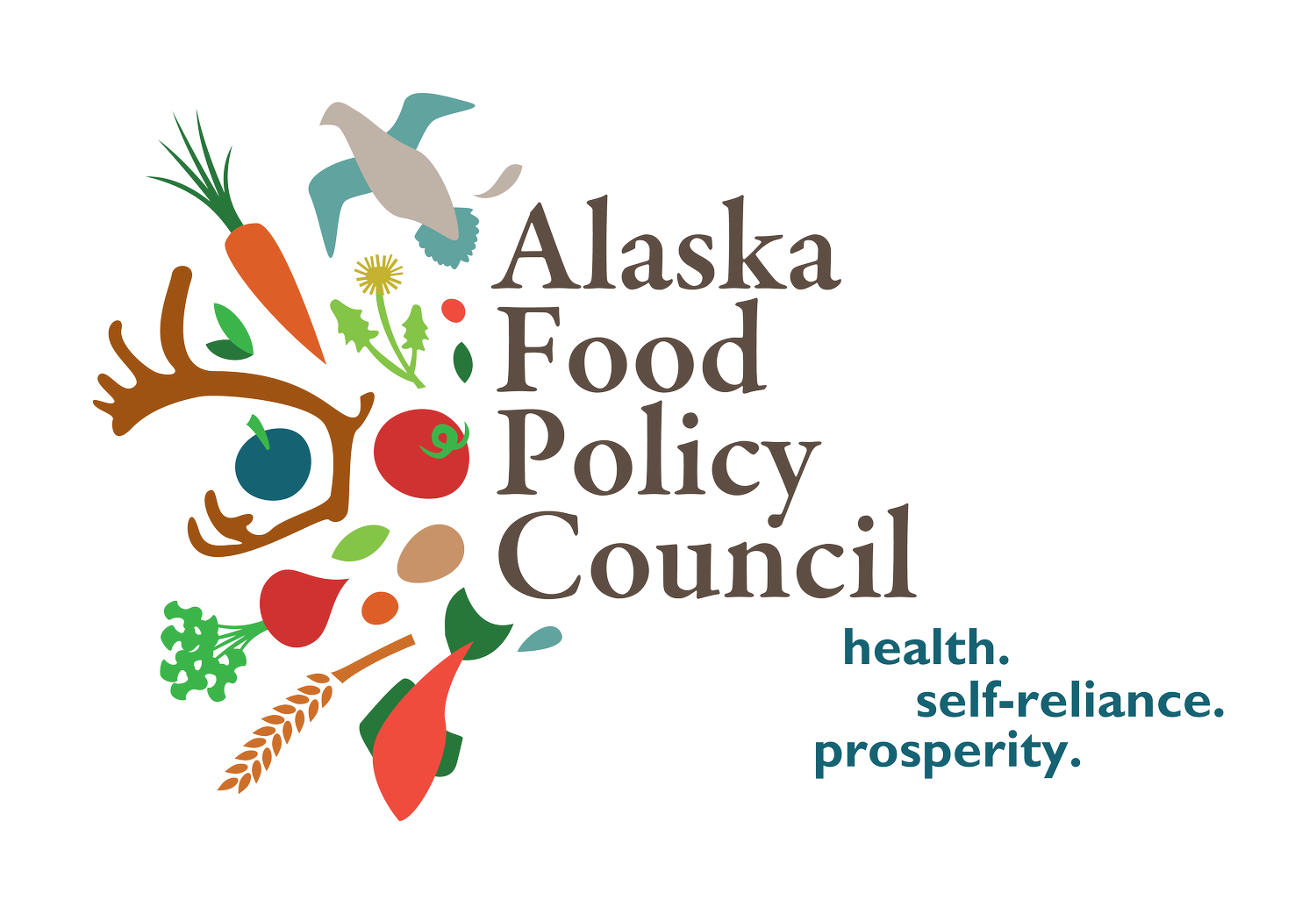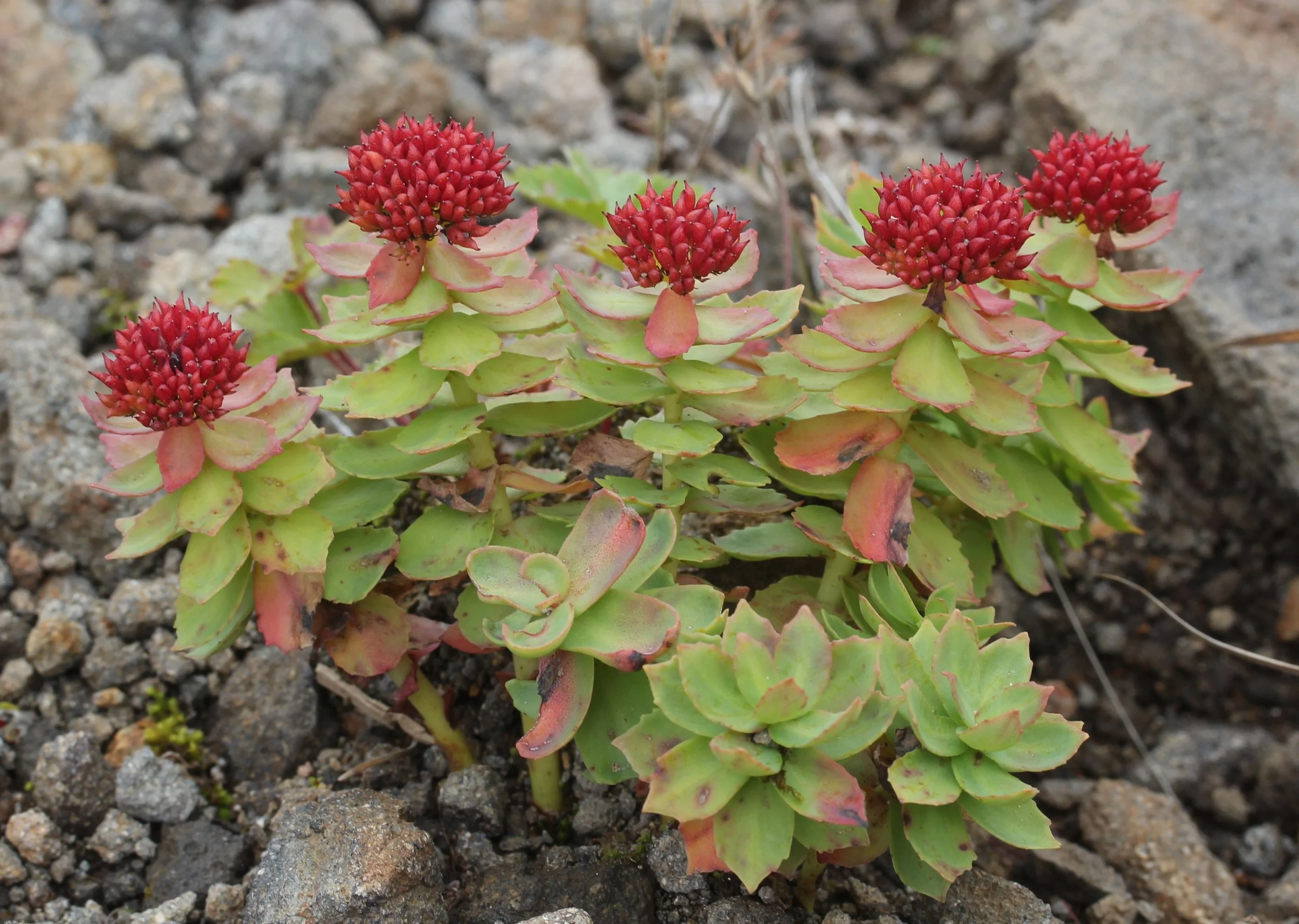The Rise of Rhodiola Farming in Alaska: A Blossoming Opportunity
Guest blog by Melissa Heuer, Spork Consulting
Alaska is emerging as a promising hub for Rhodiola cultivation, driven by growing global demand and unique local conditions conducive to growing this valuable medicinal plant. The Alaska Food Policy Council (AFPC), in collaboration with Oregon Tilth and the Northwest Transition to Organic Partnership Program (NW TOPP), has been at the forefront of this initiative. A recent market research project conducted by Spork Consulting in early 2024 sheds light on the potential and challenges of Rhodiola farming in Alaska, revealing significant interest and opportunities for local growers.
The Growing Interest in Rhodiola
Rhodiola, also known as arctic root, roseroot, or goldenroot, has a rich history of use as a medicinal plant. Its adaptogenic properties help the body resist physical and environmental stress, making it popular among natural supplement consumers. As interest in natural remedies continues to rise, so does the demand for Rhodiola. However, overharvesting has led to Rhodiola being listed under the Convention on International Trade in Endangered Species (CITES), limiting the availability of wild Rhodiola and opening up opportunities for cultivated sources.
The market research project revealed significant interest in Rhodiola cultivation across Alaska. Potential growers are distributed throughout the state, including regions like Anchor Point, Wasilla, Anchorage, Fairbanks, Cordova, and the Kenai Peninsula. This widespread interest is a positive indicator of Rhodiola's potential as a viable crop in Alaska.
Market and Economic Opportunities
Alaska Rhodiola, founded by Dr. Petra Illig, is pioneering the cultivation and processing of Rhodiola in the state. The business focuses on organic practices and direct sales through online platforms, targeting a global market. Expansion plans include developing additional processing facilities and diversifying product offerings to include capsules and skincare products, aiming to create a vertically integrated production system with Alaska-produced Rhodiola.
The research highlighted a strong market demand for unprocessed Rhodiola in Alaska, presenting a significant economic opportunity for local farmers. However, the transition to organic certification remains a challenge for many growers. While the financial burden is a factor, the complexity of paperwork and tracking requirements poses a more significant barrier. Simplifying these processes could encourage more growers to pursue organic certification, enhancing the marketability of Alaskan Rhodiola. While certification may not be possible for everyone, the importance of organic cultivation methods is key. Due to the slow degradation of pesticides in Alaska’s cold soil pesticides that would normally persist for 34 days in warmer climates will persist in Alaskan soils for three to five years while also bioaccumulating in plants.
Research and Development
Dr. Jenifer McBeath at the University of Alaska Fairbanks is conducting critical research on Rhodiola suitable for Alaskan conditions. Her work focuses on disease management and optimizing cultivation practices. Disease outbreaks and the need for uniform plant characteristics are significant challenges. Dr. McBeath's research aims to develop solutions for these issues, ensuring the sustainability and profitability of Rhodiola farming in Alaska.
Our Rhodiola Webinar attendees discuss the potential for more community and connection to grow the Rhodiola market in Alaska. Watch the video online.
Community and Networking
Project participants underscored the importance of community and networking among Rhodiola growers. There is strong interest in forming a cooperative or growers' group to facilitate collaboration and resource sharing. Such networks could provide valuable support, particularly in navigating the complexities of Rhodiola farming and organic certification.
Recommendations for the Future
To capitalize on the growing market potential and support the development of Rhodiola farming in Alaska, several actions are recommended:
1. Enhanced Support and Training: Provide targeted educational programs and technical assistance to help growers with organic certification, disease management, and market access.
2. Strengthening Community Networks: Foster the formation of a Rhodiola growers' cooperative to promote collaboration and knowledge sharing.
3. Continued Research and Development: Invest in ongoing research to address disease management and improve cultivation practices, ensuring the sustainability and profitability of Rhodiola farming in Alaska.
4. Market Expansion Strategies: Develop comprehensive marketing strategies to promote Alaskan Rhodiola in global markets, emphasizing its unique qualities and organic cultivation methods.
5. Simplify Certification Processes: Provide additional resources or simplify the process and paperwork requirements for becoming and maintaining Certified Organic status.
Alaska is well-positioned to become a leading producer of high-quality Rhodiola, supporting local agriculture and tapping into the growing demand for health supplements worldwide. By addressing the challenges and leveraging the opportunities identified in the market research project, Alaskan Rhodiola can thrive, benefiting both growers and consumers alike.






